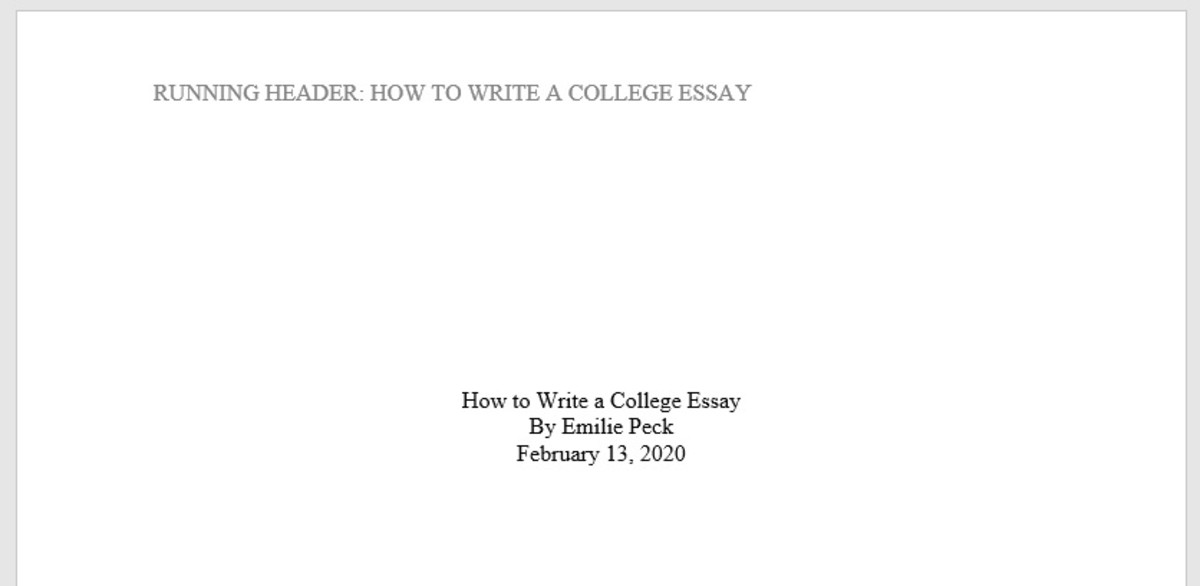How to Study in College - Study Tips for College Students
How to study in college
Do you seem to put in hours and hours of study, burning that midnight oil, and still getting average grades? Hold on there … you may be going about that studying the wrong way. You do not have to be a nerd to study at college. You just need to be able to prioritize and find the right balance between studies and fun is one I would consider successful. The years you spend at a school or a college may be some of the best years of your life, and you need to make the best of them. Your interests and hobbies need not be sacrificed at the altar of studies. You could still pursue them, you just have to be smart and find your balance. Adopting effective study techniques while working smartly can help you to study well at college. In this article, I will be sharing with you, scientific and tested facts that will provide answers to your quest about how to study in college. These tips are not only for college students but also for anyone who wants to improve their learning abilities and academic achievements. These are simple and easy to adopt, but nonetheless effective.

Tips for college students
Your beliefs and efforts decide your achievements, I assure you that though what follows may be simple, it has been tried and tested scientifically. Professor Carol S. Dweck, says that the difference between success and failure is in the way you think. She explains that the common beliefs, which people hold about ability and intelligence as the final stamp of success or performance, are not necessarily true. Your beliefs and effort decide the outcome of your performance; not just your ability or intelligence. If you want to be the smartest student in your class, all you have to do is change the way you think.
Understanding How to Study at College
To better understand this theory, we shall learn more about how these beliefs prevent you from functioning optimally.
Assuming that your intelligence is your key to success actually prevents you from setting your goals, planning towards them and making those efforts that help you achieve your goals.
Studies have proved that students who believed that they were only as good as their IQ suggested they were, had these labels stuck to them: ‘I am smart’ or ‘I am dumb’, which prevented them from attempting those tasks they were not familiar with.
The fear of losing the label ‘smart’, ‘intelligent’ made them vulnerable, insecure and fearful of learning new concepts/skills. The fear of failure was often their undoing.
These people did not enjoy the process of learning, as they are afraid of making mistakes and being found out for what they are… a person of normal intelligence.
They felt insecure about taking up challenges and withdrew into their comfort zones to avoid what they considered humiliation.
An open mindset helps increase your ability to learn
On the other hand, it was observed that students who believed that they could achieve more with effort, showed a steady improvement in their academic performance.
These students had nothing to lose and could afford to slow down and work on a concept until they figured it out. Failure meant much less to them.
Challenges seemed enjoyable to them as they achieved each milestone. Each obstacle or challenge impelled them to seek and solve tasks that were progressively tougher. Learning became fun.
These individuals processed error or failure information deeply and learned from it; this accelerated their learning skills.
The effect of Intrinsic Motivation vs. External Motivation on Students
Self-determination increases intrinsic motivation.
Challenges and prompt feedback also help increase motivation.
Self-determination increases active learning
External rewards made students feel less capable.
It decreased their motivation.
Decreased their sense of responsibility.
Increased their anxiety levels.
Study Tips for college students
Overcome your fears. Do you have a subject or topics that you dread? How do you deal with it? Do you believe that you cannot score well, no matter what you do, or do you put in more effort into learning the subject?
Dr. Dweck’s study will tell you that it is okay if you do not understand.Slow down, take time to understand and assimilate your learning. You are your best teacher, teach yourself.
Do not hesitate to get help if you need to. Find books that are easier to understand. Get a mentor or a tutor. In other words, put in the effort until you master it. Your confidence will increase as your efforts pay off and so will your learning.
Prepare for your classes ahead of time. This improves your understanding during the classes. Pay attention, concentrate, listen actively and make notes. (These have been dealt with, in greater detail in each of these articles, check them out..they would help)
However, the most important of all these, is a change your mindset. This is what stands between you and your success.
Research in the area of Effective Learning
Experiments done with students in these areas have shown that praising students for their smartness or intelligence made them comfortable; they found it difficult to leave their comfort zones to learn newer tasks. Their insecurities mounted up, as they were required to learn newer skills. The desire to hold on to their labels becomes an obsession.
Studies have also shown that such students were more interested in knowing that they were right than in learning what was right. In other words, they had a very closed and immature mindset that prevented further learning.
During experiments conducted with two groups of students, one group was taught effective study skills while the other was were taught study skills and concepts on growth mindset. The second group was instructed about how they could improve on their scores by working hard. They were also taught that our brain is like a muscle and the more you use it the stronger it becomes. It was found that the performance of students who were only taught effective study skills gradually declined. In contrast, those who were taught growth mindset ideas found that their performance gradually improved through the academic year.
Scientific Understanding about How to Study
You could use the following findings from these studies to help you achieve academic success
The difference between the groups was not their intelligence but their motivation and their beliefs.
There is no limit to learning; practice is the key to success.
Persistence pays off. All skills require persistent practice, until they become a part of you. Effort and persistence is everything.
Intelligence is not all that it is hyped to be. You can improve your ability /talent/ potential with effort.
What you believe in is where you will go. If you are in pursuit of excellence to become a smart student, change your beliefs. Decide what is most important to you and prioritize your activities. Believe that you can do it and set ‘smart goals’ (Specific, Measurable, Attainable, Realistic and Timely) and work in that direction and it will be yours. Just do it.
Other study tips for college:
Live normally. Enjoy what you do.
You need good sleep and nutrition to help you in your efforts. Get about 8 hours of sleep every day. Don’t try and convince yourself that you can do with less. You may not know how much you are losing out.
Get yourself a nourishing, healthy diet, which includes some good brain foods.
Embrace challenges; they help increase your confidence.
Learning makes you happy and successful.
You also require physical activity. Get an hour of exercise every day. Go out and play that game you love. Remember that it helps you to learn better, so enjoy it. The oxygen to your brain is going to speed up your ability to learn.
Learn smart; use effective study skills.
Do not be afraid of failure. Praise yourself for the effort that you put in each day.
Develop an interest and curiosity about all things. Not all subjects are going to be interesting to you. Nor are all the chapters or topics that you need to learn, going to be to your liking. You need to approach each of these topics with a curious and enquiring mind. This will help make your task interesting and seem like an adventure.
Make good use of technology. No, I am not talking about texting or talking on your phone at lectures. I am talking about recording the lectures on your phones or iPods, and listening to them as you go about doing your other mundane tasks. This will help your brain to process the information even while actually not studying. Alternately, listen to what you need to remember before you go to bed. Science has proved that your brain processes all the information that you have learned during the day when you sleep. Your naps are going to trick your synapses into working harder.
When you find your attention is flagging or between chapters, it is good to take a short breaks.
Cut out the distractions.
Connect what you learn to the knowledge that you already have. Keep those neurons linking.
Studies have also proved that testing is good for you. So do not shy away from taking tests. Prepare your own test papers, or find test papers online and give yourself tests after each chapter. This will show you how much you know and where you need to put in more effort.
Learn to motivate yourself and keep yourself pumped up about the efforts you make. It has been proved repeatedly that self-determination is the best form of motivation.
If you are smart, you will also realize another important truth, that not everyone is intelligent. Very few intelligent people make it to the top. Most of those who made it to the top have been the ones who have put in the effort. If you could follow these study tips for students you could easily be making straight ‘A’s at college while being able to get the best out of your college life.








